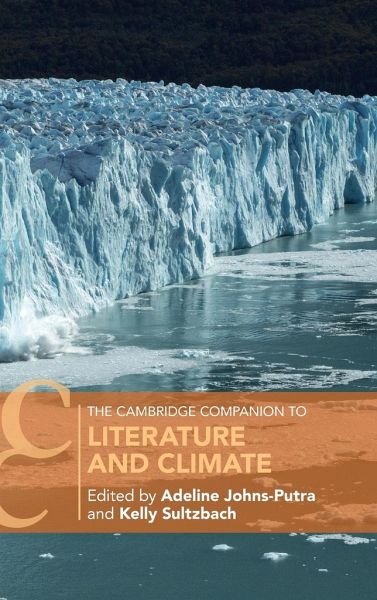
The Cambridge Companion to Literature and Climate
Versandkostenfrei!
Versandfertig in 1-2 Wochen
89,99 €
inkl. MwSt.
Weitere Ausgaben:

PAYBACK Punkte
45 °P sammeln!
Investigating the relationship between literature and climate, this Companion offers a genealogy of climate representations in literature while showing how literature can help us make sense of climate change. It argues that any discussion of literature and climate cannot help but be shaped by our current - and inescapable - vantage point from an era of climate change, and uncovers a longer literary history of climate that might inform our contemporary climate crisis. Essays explore the conceptualisation of climate in a range of literary and creative modes; they represent a diversity of cultura...
Investigating the relationship between literature and climate, this Companion offers a genealogy of climate representations in literature while showing how literature can help us make sense of climate change. It argues that any discussion of literature and climate cannot help but be shaped by our current - and inescapable - vantage point from an era of climate change, and uncovers a longer literary history of climate that might inform our contemporary climate crisis. Essays explore the conceptualisation of climate in a range of literary and creative modes; they represent a diversity of cultural and historical perspectives, and a wide spectrum of voices and views across the categories of race, gender, and class. Key issues in climate criticism and literary studies are introduced and explained, while new and emerging concepts are discussed and debated in a final section that puts expert analyses in conversation with each other.




